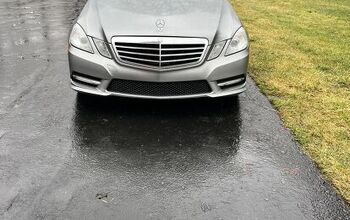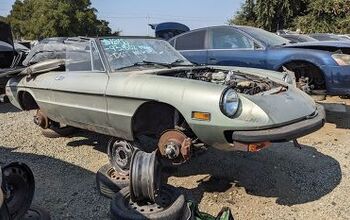The Next M3 Back Down to Six Cylinders?
I've been kvetching about the overcylinderization of BMWs M cars for a while now. The first M3 had an inline four. The next two gens holstered straight sixes. And now the M3 has a high-revving V8. BMW's mighty M5 went from two generations of straight sixes to a V8 to a high-revving V10. All this horsepower excuses BMW from having to lighten its cars and focus on improving dynamics. It seems that BMW CEO Norbert Reithofer is thinking along the same lines. Speaking to the German magazine Auto Motor Und Sport, Reithofer said he wants to trim down to fewer cylinder engines in the M cars and the rest of the BMW range. In particular, he said that BMW's diesel V8 (which is rather popular over in Europe) would be replaced with a twin turbocharged I6. And he indicated that the M range would also probably be downsized as well. Turbocharging, not displacement and cylinders, would be the path to improvements in M cars' horsepower and weight distribution. (Not to mention CO2 emissions.) Hey, if it works for the Nissan GT-R…


































Comments
Join the conversation
That would be beautiful, if this was the case. Maybe other manufacturers would follow suit. Then the US market would have more light cars that handle well. The only manufacturer that seems to be making their cars lighter with new models is mazda (correct me if I'm wrong).
I think the new M3 is a great car, but it has some flaws, like the high seating position and the relatively softish dampers/chassis setup, that the previous generation didn't have. The previous gen E46 was great in every way, no flaws to that car at all. In terms of M-ness the CSL version is a worthy adversary to the first gen M3. The problem they had with the new one is that they were forced to give it a V8, since they couldn't make the car better otherwise and since Audi and Mercedes were offering more power, no matter how well and purposefull a car might be engineered, many people are going to look at the numbers and think it's inferior. Bolting on a turbo definitely wasn't an option for M because it is too easy and compromises the engine character (although, the Toyota turbo-4 in the Elise seems to prove that turbo-engines can still have a high-rpm redline and peak power output). As for the the 335; the European rating is 306 HP, with the maximum output of the same engine without turbos is currently at 272 HP. Apart from whether or not these are correct numbers it's obvious that they could get a lot more out of it with the turbos, but that wasn't the point. In spite of the notions from the German carmakers that the HP-war is at its end though, I believe that Reithofer (who isn't a car guy) was mainly aiming at the V8 diesels, that are btw really not that popular in Europe because performance gains usually aren't that great in practise, but fuel consumption is much worse, and the approximately 4 models in which they are offered usually are much more expensive to buy in the first place compared to their 6 cilinder siblings, so how big this news really is seems unclear at this point.
What's "EcoBoost" in German?